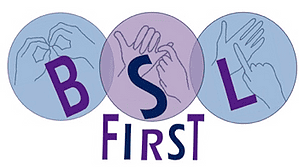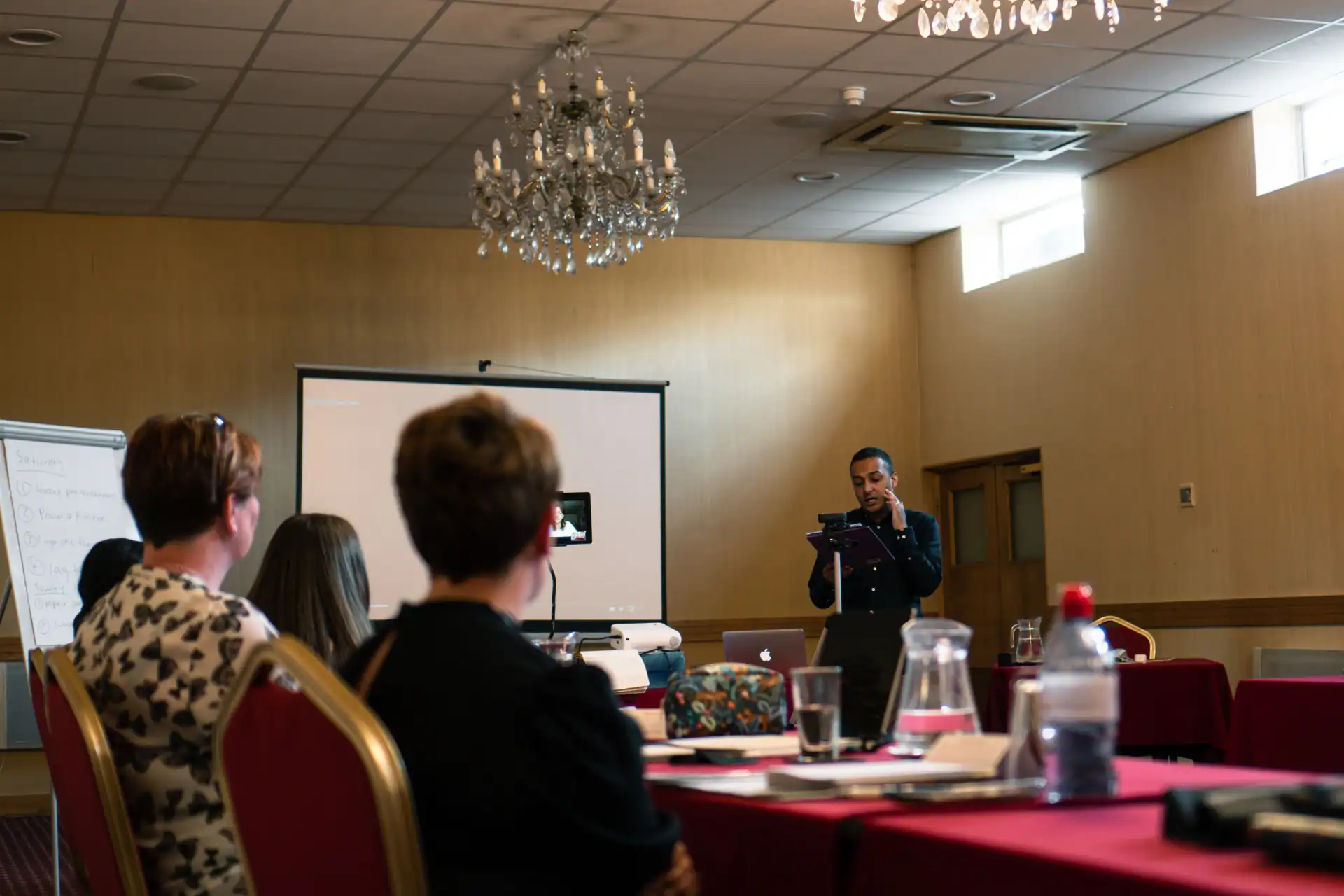The first year is made up of 120 hours of guided learning hours and 120 hours of structured independent study (total 240 hours). The guided learning sessions are divided into 10x 12-hour sessions over a weekend once a month over 10 months. This is followed by an additional 12 hours of structured independent study per month, which is completed through our e-learning platform.
In the first year, you will develop your knowledge, understanding and skills in the following areas:
| Module | Topics covered |
|---|---|
| Theories and principles in interpreting and translation studies | You will be introduced to a wide variety of key theoretical frameworks in interpreting and translation studies, such as functionalist theories, ethical models and the role of the interpreter and translator. It will introduce you to some of the current principles and issues in the public service interpreting and translation professions, with a focus on signed language interpreting and translation, and will encourage you to think critically about your own practice by applying a range of theoretical frameworks. You will also discuss ethical dilemmas that may arise during interpreting assignments. |
| Maintain skills and systems for interpreting tasks | You will understand the importance of maintaining interpreting and language skills as a professional interpreter and you will critically evaluate a range of systems to help you maintain your professional skills. As most sign language interpreters and translators are self-employed/freelance, you will learn about the requirements and demands of working as a freelance interpreter/translator, including practical business administration skills, the importance of maintaining good relationships with clients and how to find and charge appropriately for interpreting work. |
| Prepare for interpreting assignments | You will learn about the importance of preparing for interpreting assignments, applying key theories in interpreting and translation studies to plan and prepare appropriately for assignments. You will be able to assess your own ability to undertake, and accept, interpreting assignments, as well as plan and prepare for assignments as part of a team of interpreters. You will learn about the importance of maintaining a glossary for domains you regularly work in. You will critically evaluate and apply a range of preparation strategies and you will produce evidence of preparing for 4 assignments. |
| Plan and implement continuous professional development | You will work with your professional supervisor to plan your development points over the course of your studies. You will create, maintain and update a Professional Development Plan throughout your studies. Your plan will be informed by trends, developments and good practice in the sign language interpreting/translation profession as well as your own evaluation of your gaps in knowledge, skills and competence. You will have regular meetings with your supervisor to review your PDP (required to maintain your TSLI registration). |
| Consecutive and simultaneous interpreting | This is a practical module where you will practise interpreting between English and BSL. You will be encouraged to critically analyse your own interpreting by applying relevant theories in interpreting and translation studies. You will be introduced to consecutive and simultaneous interpreting and you will be taught interpreting techniques, including note-taking skills. You will practice both one-way and two-way interpreting between English and BSL. This module will also introduce you to some of the main domains that interpreters work in. |

